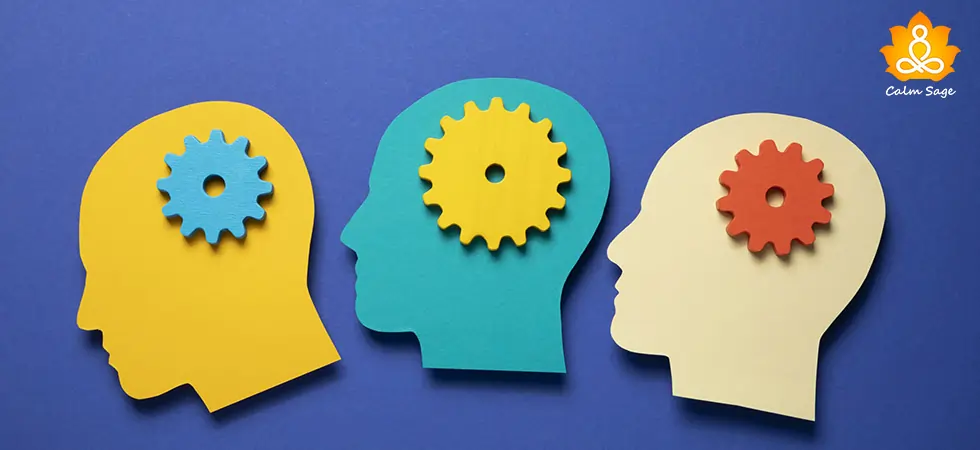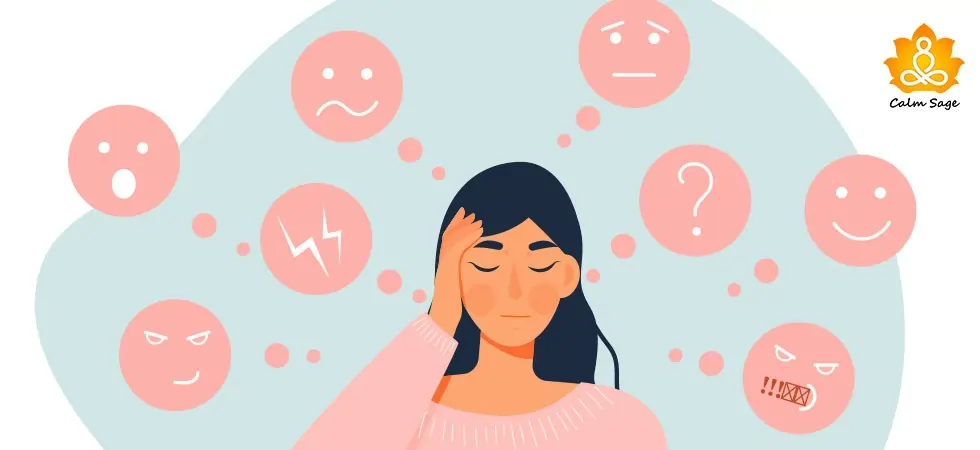Understanding The Three Phases Of Schizophrenia And Their Symptoms

Schizophrenia is one of the most disabling psychiatric disorders that affect not only your thoughts but your emotions and your behaviors too.
This chronic mental health illness causes you to lose touch with the real world. In some cases, schizophrenia may develop fast, however, in many cases, it develops gradually. Schizophrenia can affect anyone – regardless of their age or gender.
Although, according to research, men are more likely to develop symptoms than women. Most of the symptoms of schizophrenia can become noticeable during the late teens or early 20s.
In this blog, you’ll read the three phases of schizophrenia and the symptoms of each phase along with how schizophrenia can be treated.
Also Read: Childhood Schizophrenia: Symptoms, Causes & Treatment
The Three Phases Of Schizophrenia
1. Prodromal Phase

The prodromal phase of schizophrenia is the first stage. During this stage, the symptoms are not severe or easily recognizable. Because of this, this phase can be hard to diagnose.
However, if this stage is accurately and timely diagnosed then the condition of the person struggling can improve vastly. Treatment during the prodromal stage can help control the other symptoms.
In the prodromal phase of schizophrenia, the diagnosis can be tricky as most of the symptoms mirror the symptoms of other mental health disorders such as depression. The initial phase of schizophrenia can last for a few weeks to a few months.
However, some people may not even go through the prodromal phase.
Symptoms Of The Prodromal Phase
Most of the symptoms of this phase are mild and hard to identify. Keep in mind that some symptoms may mirror other mental health disorder symptoms. Some of the common symptoms of this phase can be:
- Self-isolation
- Anhedonia or loss of interest in previously enjoyable activities
- Difficulty expressing feelings and emotions
- Being clumsy
- Restless sleep
- Anxiety
- Change in beliefs
- Change in appetite
Note that not all people with schizophrenia may experience all these symptoms and these symptoms may vary from person to person.
2. Acute/Active Phase

The acute or active phase of schizophrenia is the second stage. During this phase, a person may develop symptoms of psychosis. It’s easier to get a diagnosis for the acute phase of schizophrenia.
The symptoms of this phase can impact a person’s daily routine. However, with an early diagnosis and getting the right treatment, the symptoms of the acute phase can be controlled.
Symptoms Of The Acute Phase
Symptoms of the acute phase can be positive and negative. During this phase, a person is likely to experience positive symptoms. These symptoms are usually abnormal and something that people without schizophrenia would not experience such as:
- Hallucinations
- Delusions
- Thought broadcasting
- Disorganized thoughts
- Disordered speech
- Changes in motor functions
- Lack of emotional expression
- Lack of social interaction
A proper diagnosis during this phase of schizophrenia is crucial as a person displays unusual behavior. It’s also possible that a person may harm themselves if proper treatment is not administered at this phase.
If you believe someone you know is at risk of self-harm or suicide, then please immediately reach out to your local helpline number. You can also contact one of these helpline numbers:
- National Suicide Prevention Lifeline: 1800-273-8255
- Crisis Text Line: text HOME to 741741
- TrevorLifeline: 866-488-7386
- iCall: +91-9152-987-821
- AASRA: +91-9820-466-726
- Vandrevala Foundation: +91-9999-666-555
3. Residual/Recovery Phase

The residual or the recovery phase of schizophrenia is the final stage. To reach this stage, treatment in the acute phase is required. During the recovery phase, a person may have less energy and lack motivation.
Moreover, a person may relapse into the acute phase after being in recovery for some time. Although, with continuing the treatment, this situation can be avoided.
Symptoms Of The Residual Phase
During the residual phase of schizophrenia, people are more likely to develop negative symptoms that can decrease a person’s healthy functioning. Some of the symptoms from the acute phase may remain but are less severe. However, some symptoms may mirror the ones from the prodromal phase:
- Lethargy
- Social isolation
- Anhedonia
- Difficulty concentrating
- Lack of proper hygiene
- Illogical thinking
- Unusual behavior
How Is Schizophrenia Diagnosed?
Diagnosis of schizophrenia is often done during the acute or active phase when symptoms are more obvious and noticeable. Symptoms of the prodromal phase are not identified until the patient is in the acute phase.
A proper diagnosis is done keeping in mind the diagnosis criteria defined in the DSM-5. After a proper diagnosis, a professional can guide you on the next steps.
Related Read: Schizoaffective Disorder: Symptoms, Causes & Treatment
How Is Schizophrenia Treated?

While schizophrenia is a chronic and incurable disorder, there are treatment options available that can help manage the severity of the symptoms and their impact on a person’s daily life and functioning.
Typically, a combination of psychotherapy and medications can be used to treat the symptoms of schizophrenia. Psychotherapy can include using approaches such as cognitive-behavioral therapy (CBT), family therapy, or family interventions.
Effective treatment can help people with schizophrenia undergo remission with mild to moderate symptoms. However, there is still a possibility of relapse so it’s important to monitor the symptoms regularly to prevent a relapse. In severe cases, hospitalization may be required.
If someone you love is schizophrenic, then these tips can help you:
- Give them space and avoid crowding them. If they feel threatened, they might lash out at you.
- Help them focus on reality without being aggressive or authoritative in your approach.
- Avoid arguing with them and gently ask questions, only if they are open to answer.
- When they are struggling with their symptoms, try to reassure them and use simple techniques to calm them.
- If they’re triggered by something, try removing the object from their field of vision.
- Explain to them what you’re doing and try to be calm during your explanation.
- Encourage them to continue their therapy and take medications. Seeking professional help and proper treatment can go a long way to help them cope.
Remember, it’s okay to feel exhausted when caring for someone with a disabling and chronic disorder. It is recommended that you seek help whenever you need it and take breaks to care for your mental and emotional health too.
You can also consider joining a support group for friends and family members of people with schizophrenia.
Related Read: 10 Famous People And Celebrities With Schizophrenia
Writer’s Thoughts
Schizophrenia is a chronic psychiatric disorder that can impact a person’s overall health and functioning. If someone you love is schizophrenic, then you can help them by offering your constant support and being respectful about their condition.
It can be challenging to live with schizophrenia but with the right diagnosis and proper treatment, the symptoms can be managed.
I hope we were able to explain the three phases of schizophrenia and their symptoms. If you have any queries, you can connect with us at info@calmsage.com or follow us on social media.
If you found this article helpful or if you think we missed something, let us know in the comments below.
Take Care!




















